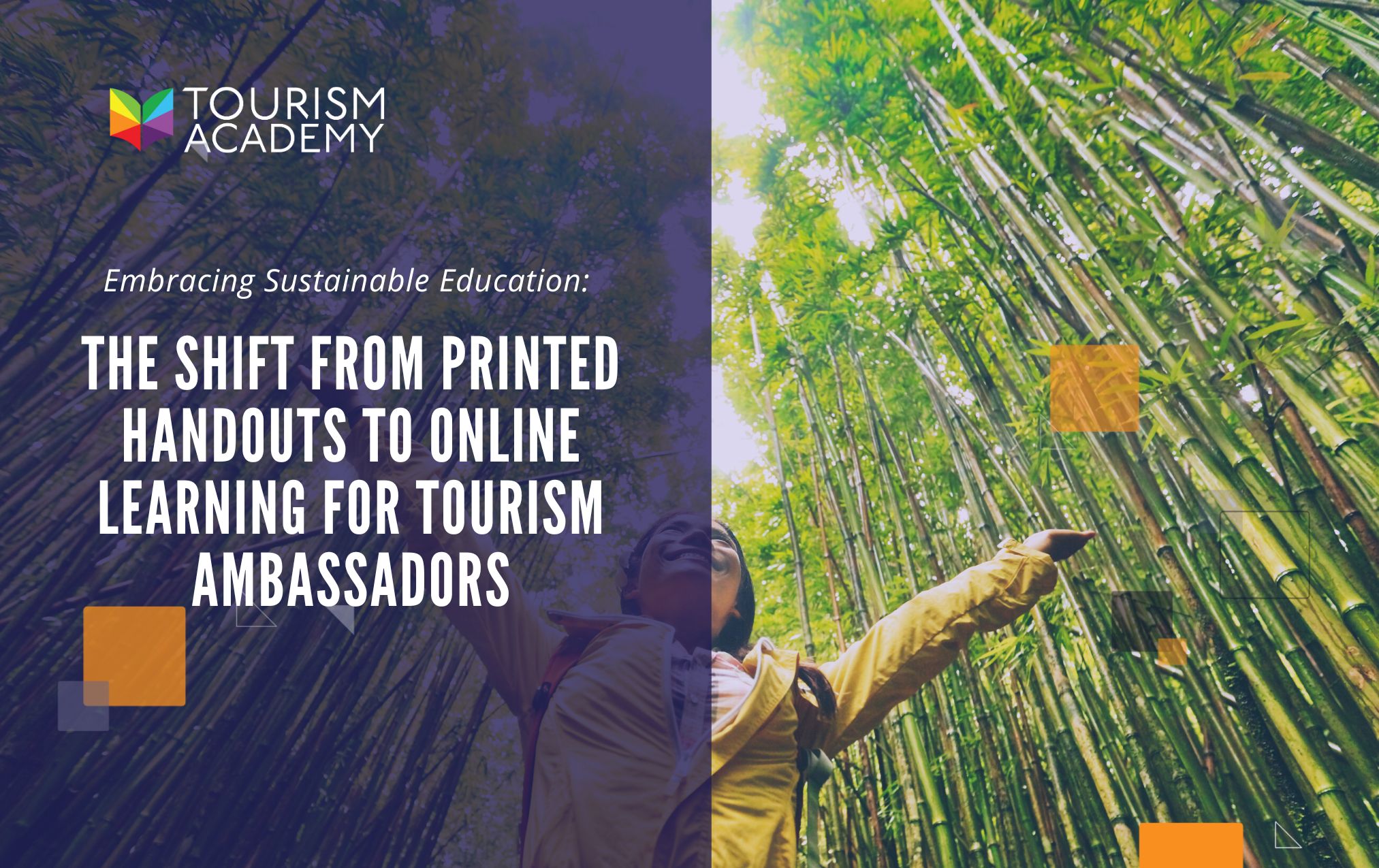
Embracing Sustainable Education: The Shift from Printed Handouts to Online Learning for Tourism Ambassadors
In an age where sustainability and environmental responsibility are paramount, the tourism industry is not exempt from the global push for eco-conscious practices. Online learning for tourism ambassadors is a more sustainable and environmentally responsible alternative to traditional training methods that rely heavily on printed materials, in-person meetings, travel, and energy consumption.
Here's why online learning is the way forward for sustainable tourism education:
-
Reduction in Paper Usage: One of the most apparent benefits of online learning is the significant reduction in paper consumption. Traditional training methods often rely on printed handouts, brochures, and manuals, which contribute to deforestation and result in vast amounts of waste. Online courses and materials can be accessed digitally, eliminating the need for printing and reducing the industry's environmental impact.
-
Minimized Travel Emissions: Traditional training methods often involve in-person meetings and travel for workshops, seminars, and conferences. These activities generate a substantial carbon footprint. Online learning allows participants to access training content from anywhere with an internet connection, eliminating the need for physical travel and reducing greenhouse gas emissions.
-
Lower Energy Consumption: Hosting in-person events and meetings requires considerable energy consumption, from venue lighting and heating to transportation logistics. Online learning platforms are more energy-efficient, especially when hosting eco-friendly data centers and renewable energy sources. This helps reduce the overall carbon footprint of education in the tourism industry.
-
Flexibility and Accessibility: Online learning allows tourism ambassadors to access training materials at their own pace and schedule. This accessibility enables them to balance their education with work, reducing the need for extended leaves or time-consuming in-person sessions.
-
Reduced Resource Intensity: Traditional training often involves using various physical resources, such as printed materials, office supplies, and infrastructure. Online learning minimizes these resource-intensive requirements, leading to a more sustainable and responsible approach to education.
-
Real-time Updates: The tourism industry is constantly evolving. Online learning can update content in real-time to reflect the latest trends, best practices, and sustainable approaches. This ensures that tourism ambassadors are always equipped with the most current information and tools to make responsible decisions.
-
Global Collaboration and Community Building: Online learning facilitates collaboration and community building globally. Tourism professionals can connect, share knowledge, and learn from each other, regardless of their physical location. This global network promotes a sense of shared responsibility for sustainability in the industry.
Promoting online learning for tourism ambassadors helps reduce the carbon footprint of education and contributes to building a more responsible and sustainable tourism sector. As Maya Angelou once said, "Do the best you can until you know better. Then when you know better, do better." Online learning is a better, more sustainable way to educate and empower tourism ambassadors.